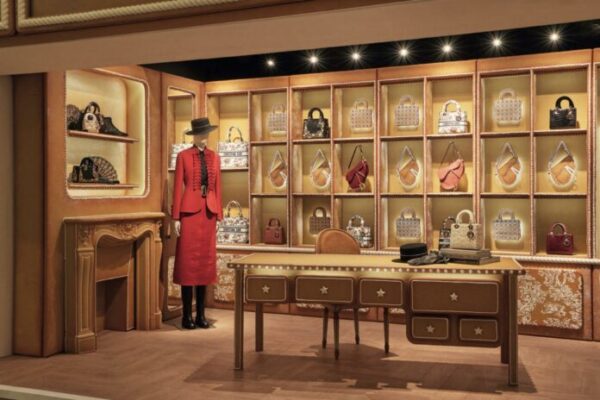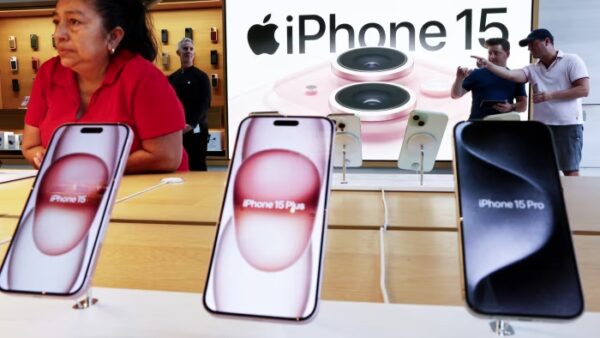
Harrods Adopts New Holistic 360-Degree View of the Customer to Increase Engagement, Retention, and Spend

The world’s leading luxury department store, Harrods, has completed of an ambitious 18-month project, led by KPS, to elevate customer experiences by streamlining their journeys both online and offline. Among the benefits are improved customer loyalty via a unified approach to communications and promotional activities, and the ability to enhance sales via increased customer engagement and retention.
We take a detailed and exclusive look at how, why, and the benefits for customers and retailer alike.

Single view of the customer
Synonymous with customer experience, Harrods has become a hallmark of luxury retail. But Harrods is no ordinary retailer. Its flagship 93,000 square metre, seven-floor department store in London’s Knightsbridge, signature green bags, beautiful interiors and world-renowned food halls attract a varied audience of shoppers, including high net worth customers, celebrities and visitors from all over the globe. In addition to the store, Harrods offers luxury fashion, accessories, food, homeware and gifts online. With over 330 departments and dozens of concierge-style services, it serves a challenging demographic looking for everything from haircuts to handbags.
The challenge
For a unique multi-faceted retailer like Harrods, loyalty is an integral part of its wider CRM strategy. Introduced in 2008 to replace a store card product, Harrods ‘Rewards’ loyalty programme allows members to earn points and awards exclusive access to an array of benefits, across four membership levels (Green 1, Green 2, Gold and Black’ that are determined by annual spend).
Although well positioned with an existing CRM solution, more and more systems were being added across its varied services, resulting in siloed customer data sets that didn’t connect, e.g. different records were stored in different systems, but not linked to each other. Each department already offered its customers a high-level of service and personalisation; however, it was only available in-store or for high-value customers.
The specific challenges this landscape posed included:
A lack of depth in the data captured, with no customer interactions stored other than sales orders and transactions.
A hinderance to scalable activities or the ability to adapt quickly due to limitations of the previous platforms.
No consolidation of customer data, leading to a challenge when trying to understand what benefits and services may appeal to the customer, making targeted customer communication with accurate, relevant content impossible.
No unified approach to communications or promotional activities to enhance sales, increase engagement and retention.
Solution
Over the past 18 months, with the help of UK and European specialist teams from KPS, the replacement of the legacy IT landscape has been rolled out – transitioning to a customer-centric and unified strategy.
Following a rigorous assessment and evaluation process, Harrods chose to implement an SAP CX solution, partnering with award-winning SAP experts, KPS, to manage the implementation.
In 2021, the partners set to work overhauling the Harrods platforms, with the overall aim to renew its customer loyalty platform, marketing platform, service and customer data management, reforming it in a scalable software-as-a-service (SaaS) architecture that would help Harrods to:
- Achieve agility through SaaS platforms, adoption of best practice processes and standard functionalities.
- Open new possibilities for identifying and targeting the right customers through holistic and centralised customer data.
- Automate and personalise the customer approach to develop each prospect into a high-value customer.
- Provide leading customer analytics to create a new, intelligent foundation for data-driven decisions.
- Provide timely, relevant and measurable customer communications, segmentation and marketing to drive sales and support and enhance human interactions.
- Offer a seamless experience across all touchpoints in the customer journey.
Implementation
Over a period of 18-months, the partners navigated a complex transformation journey which included:
- Collecting customer data from all the different systems: breaking down data silos, merging and harmonising data.
- Replacing 17 legacy systems with a new platform with over 200 integrations to internal and external systems.
- Migrating and unifying master data, enriching it with data about which services the customers used and which products they bought.
- Building in a GDPR-compliance (similar to DSGVO), so a customer can have all their data deleted in one step and ensure that the data is not shared.
- Segmenting data sets with the help of scoring mechanisms, e.g. RFM segmentation, engagement score or churn prediction, ensuring the customer
About 200 internal and external integrations were added to the platform, including the CRM system (SAP Cloud for Customer), the marketing automation tool (SAP Marketing Cloud), the customer data management (SAP Customer Data Cloud), the loyalty software (Annex Cloud Loyalty) and the data analysis/data visualisation (SAP Analytics Cloud with SAP Business Warehouse).
Special applications were also needed for more specific use cases, such as telephone integration, chat integration (Sinch Contact Center Pro), link shortening (Sinch Campaigns) or a knowledge base (MindTouch Knowledge Management). Every application has been integrated into Harrods’ IT environment and systems (SAP ECC, SAP CAR, SAP BW, Farfetch). Every available customer touchpoint has been connected and interacts with the platform, from the Harrods app to the currency exchange machine.
Processes and teams are also now standardised and use one single system regardless of the department they are visiting. This reduces complexity, saves IT costs and standardises the user interface.
The outcome
Harrods can now view The Golden Record – a holistic 360° customer profile through shared customer data and collection of customer interactions data from all contact points, both online and offline.
This single view of the customer helps Harrods at different levels: in making management decisions, in the business improvement team to analyse and evaluate customer behaviour, in marketing to create targeted and personalised communications and supporting customers in the best possible way.
High-value customers were personally greeted in the shop simply because employees know them. Now, such a premium service also benefits many more customers, as the view of customers can be viewed completely and quickly digitally. This makes it possible to focus on developing more customer groups into high-value customers.
The loyalty programme now underpins a scalable marketing communication for dynamic customer segments across different communication channels, with more sophisticated predictive models being developed to anticipate future customer behaviour and market to them accordingly.













































